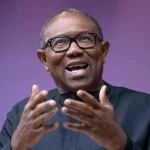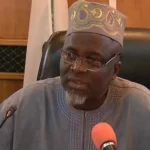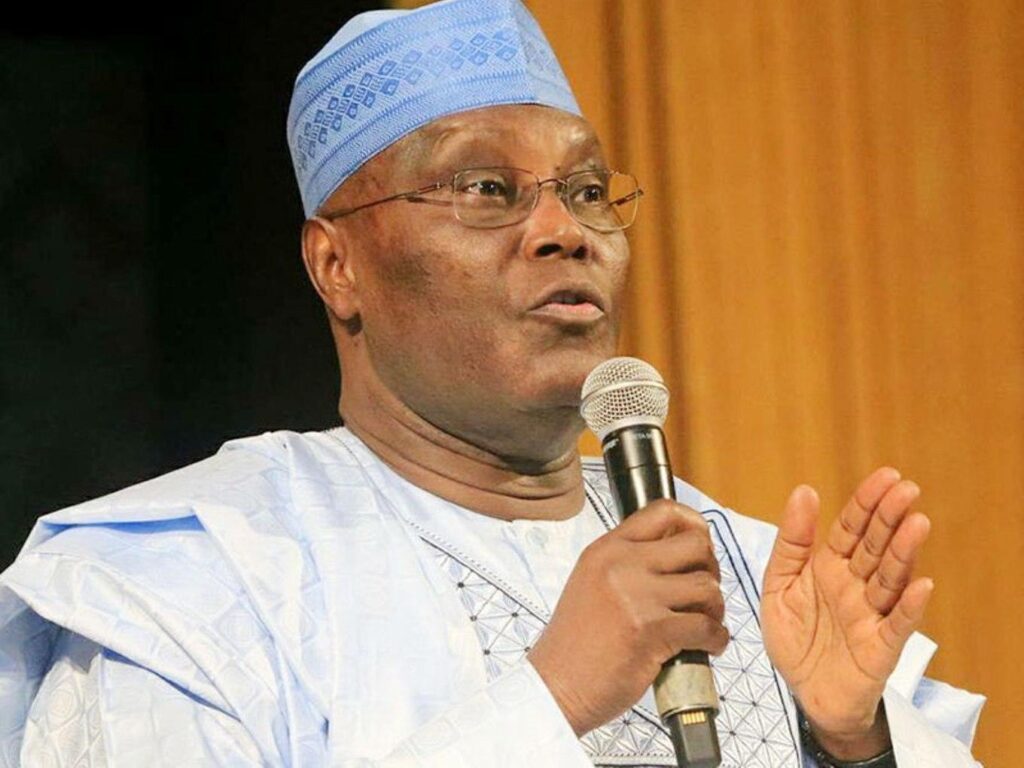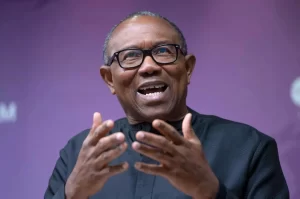The 2023 Presidential candidate of the Peoples Democratic Party, Atiku Abubakar, has criticised the 2025 budget proposal, accusing President Bola Tinubu of making the same borrowing mistakes by his predecessor, Muhammadu Buhari.
Atiku, who X-rayed the budget, asserted that it lacked the structural reforms and fiscal discipline needed to address Nigeria’s complex economic challenges.
In a statement released on Sunday, Atiku expressed doubts about the budget’s ability to promote sustainable economic growth or tackle the nation’s longstanding issues.
On Wednesday, President Bola Ahmed Tinubu presented a N47.9tn 2025 budget proposal to a joint session of the National Assembly.
The proposed budget allocates N4.91tn for defence and security, N4.06tn for infrastructure, N2.48tn for health, and N3.52tn for education.
Critiquing the budget proposal, Atiku said it reflected a continuation of “business-as-usual” fiscal practices, a trend he claimed had persisted under the All Progressives Congress-led administration since 2016.
He argued that these practices had led to repeated budget deficits and an increasing dependence on external borrowing.
“To bridge this fiscal gap, the administration plans to secure over N13tn in new borrowings, including N9tn in direct loans and N4tn in project-specific financing.
“This borrowing strategy mirrors the approach of previous administrations, leading to escalating public debt and compounding risks related to interest payments and foreign exchange exposure,” Atiku added.
The former Vice President highlighted the budget’s reliance on deficit financing, pointing out that it projects N48tn in expenditures against a revenue forecast of N35tn, resulting in a deficit exceeding N13tn—equivalent to 4% of the country’s GDP.
Atiku criticised the underperformance of the 2024 budget, which he said signalled poor execution capabilities.
“By the third quarter of 2024, less than 35% of the capital expenditure allocated to ministries, departments, and agencies had been disbursed, despite claims of 85% budget implementation. This raises concerns about the effective execution of the 2025 budget.
“The 2025 budget lacks the structural reforms and fiscal discipline required to address Nigeria’s multifaceted economic challenges. To enhance its credibility, the administration must prioritise reducing inefficiencies in government operations, tackling contract inflation, and focusing on long-term fiscal sustainability rather than perpetuating unsustainable borrowing and recurrent spending patterns.”
He also expressed concern about the allocation of N15.8 trillion (33% of total expenditure) to debt servicing, noting that it is nearly equal to the planned capital expenditure of N16 trillion (34%).
“This imbalance undermines fiscal stability, crowds out essential investments, and perpetuates a cycle of increasing borrowing.
“The government’s recurrent expenditure, which accounts for over N14tn (30% of the budget), remains disproportionately high, according to Atiku.
“This reflects the continued operation of an oversized bureaucracy and inefficient public enterprises, leaving limited resources for development projects,” Atiku said.
He further highlighted the inadequacy of capital spending, stating, “After accounting for debt servicing and recurrent expenditure, the remaining funds for capital spending—representing 25% to 34% of the total budget—are insufficient to address Nigeria’s infrastructure deficit or stimulate growth. This equates to an average capital allocation of N80,000 (approximately $45) per capita, which is inadequate for a country grappling with slow economic growth and infrastructural underdevelopment.”
He criticised the administration’s decision to increase the VAT rate from 7.5% to 10%, calling it a regressive measure that would exacerbate the cost-of-living crisis and impede economic growth.
“By imposing additional tax burdens on an already struggling populace, without addressing inefficiencies in governance, the government risks stifling domestic consumption and deepening economic hardship,” Atiku said.
Atiku called for a shift toward disciplined and growth-focused fiscal policies, emphasising the need to curb wastage, enhance the efficiency of public spending, and prioritize investments in critical sectors.
He concluded by urging the administration to rethink its borrowing strategy and adopt reforms aimed at achieving long-term fiscal sustainability and economic growth.










More Stories
Oborevwori’s SSA resigns appointment, expresses disappointment in governor
Nigeria needs leadership that sees value in every human life – Peter Obi
Trump worries Putin may be playing him, does not want end to Ukraine/Russia war